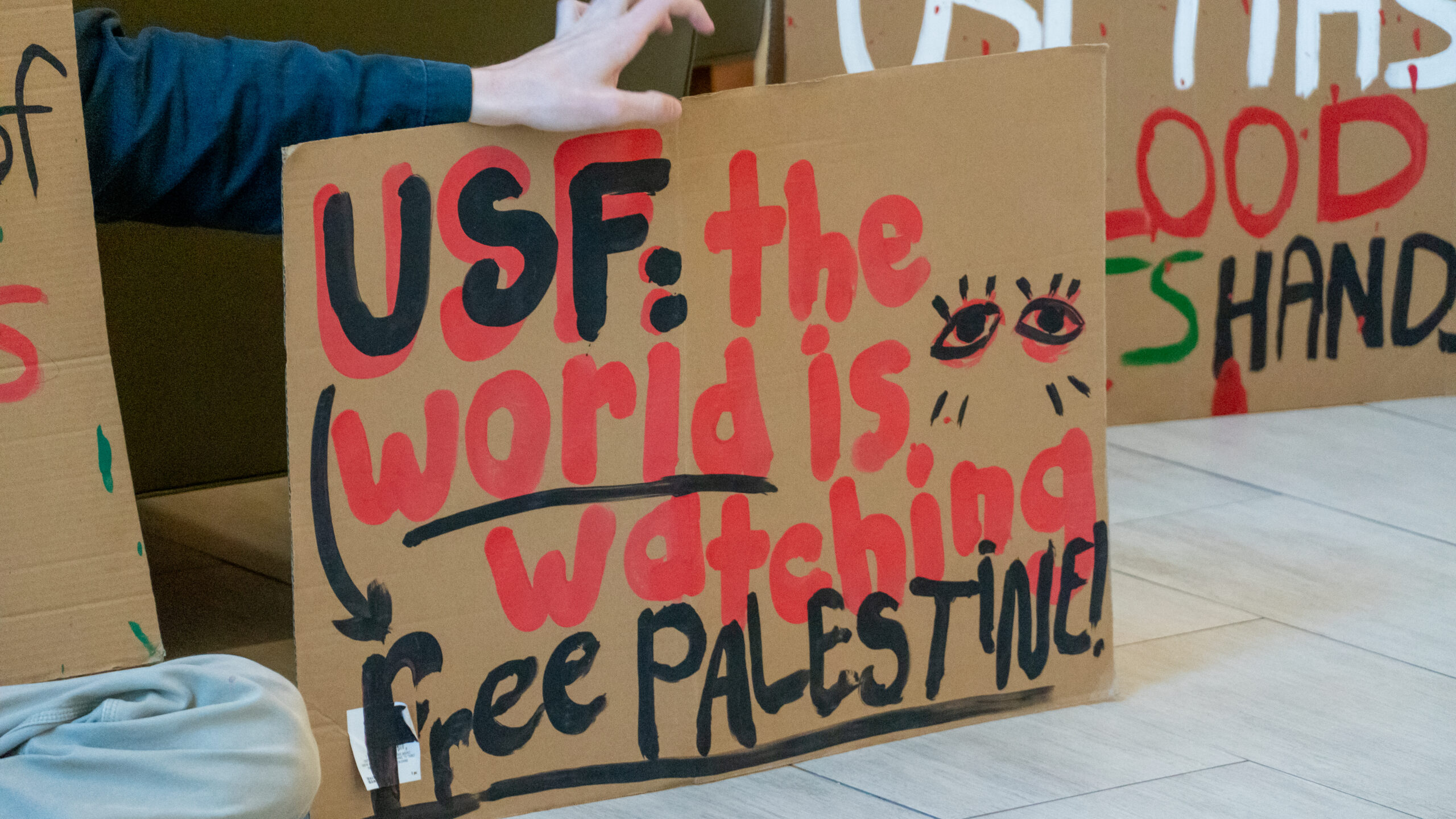OPINION: USF leaders should condemn violence against protesters

How leaders on college campuses react to moments of adversity matters – it has the potential to better or worsen on-campus tensions, while impacting student confidence in their school.
A month after an on-campus peaceful protest on April 30, which resulted in the tear-gassing of a crowd of 100 people and the arrest of 10 protesters, President Rhea Law and USF leaders are making it clear that they are pleased with this response from law enforcement.
“I’m proud of the campus police and the way that they manage themselves and represent the university,” Board Chair Will Weatherford said at the Board of Trustees meeting on June 4. “I’m proud of law enforcement for being by our side.”
Related: USF leaders applaud response to campus protests despite criticism
Instead of praising them, Law and Weatherford should have denounced the actions of law enforcement for using tear gas. The way authorities responded to the protests was unwarranted brutality.
Tear gas was thrown back to the police, said University Police Chief Chris Daniels. UP’s and other law enforcement agencies’ actions did nothing to promote de-escalation, making its goal of preserving the peace, ironic.
Between the two on-campus protests on April 29-30, law enforcement arrested 13 demonstrators. This includes five USF students, three alums and one WUSF employee.
Charges against protesters range from misdemeanors, including unlawful assembly and resisting arrest, to felonies, such as resisting an officer with violence and possession of a firearm on school property.
Related: USF can place protest restrictions, First Amendment expert says
In May, Zachary Greenberg, a First Amendment expert, told The Oracle the 5 p.m. deadline given to protesters was a reasonable time restriction. He said these limits are usually used to enforce quiet hours and time for people to study.
But even if chants could be overheard by students studying for finals as Law’s email on April 30 suggested, does this really call for chemical warfare?
Tear gas should be a last resort used by authorities to disperse crowds that pose active threats to people’s safety. It is often used by police as a means of riot control.
“My eyes and throat were burning. I didn’t know what was going on around me.” Atiq said about the effects of the tear gas. “I couldn’t breathe, I couldn’t see. I was pretty much incapacitated, that’s what tear gas is supposed to do.”
In a May 1 statement, Howard Simon, interim executive director of the American Civil Liberties Union of Florida, said university administration has to respect the right to free speech and peaceful protest.
“Universities are meant to be havens for robust debate, discussion and learning — not sites of censorship where administrators and politicians squash political discourse they don’t approve of with threats, arrests, rubber bullets and tear gas,” Simon said.
Disbanding champions of the Palestinian cause was a means of stifling their voices, while shifting media attention from USF’s refusal to divest. Now, dialogue is focused on the “rowdy” protesters.
Related: ‘USF can and should divest,’ a hunger striker writes
Tuition-paying students should not face consequences for standing up for what they believe in on campus, especially if they go about it peacefully and if they are bringing awareness to an issue that USF chooses to remain involved in.
Leaders at USF should be ashamed of how they justified such actions against their own students.
College campuses have been and will continue to be places for open, but respectful, dialogue.
It’s hard to do so when student pleas for change are silenced and peaceful protests are met with chemical weaponry.








